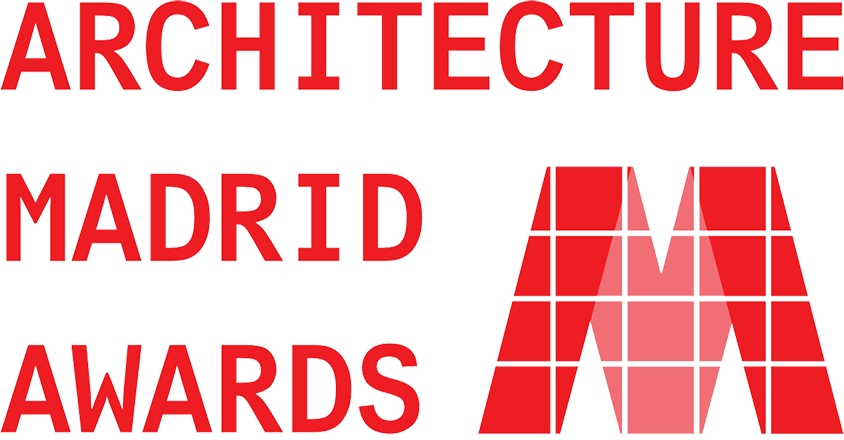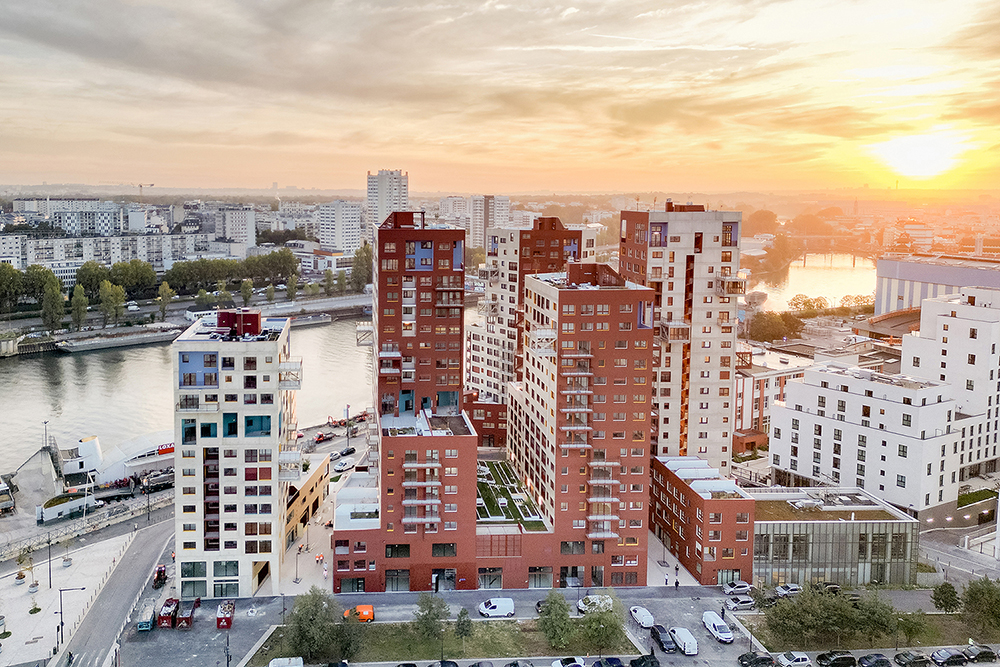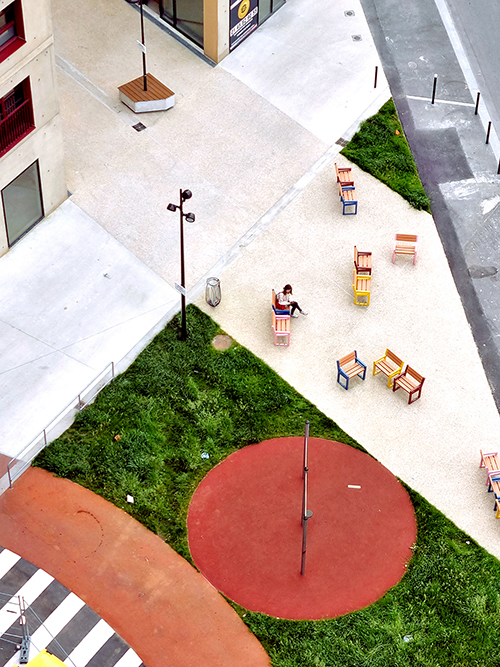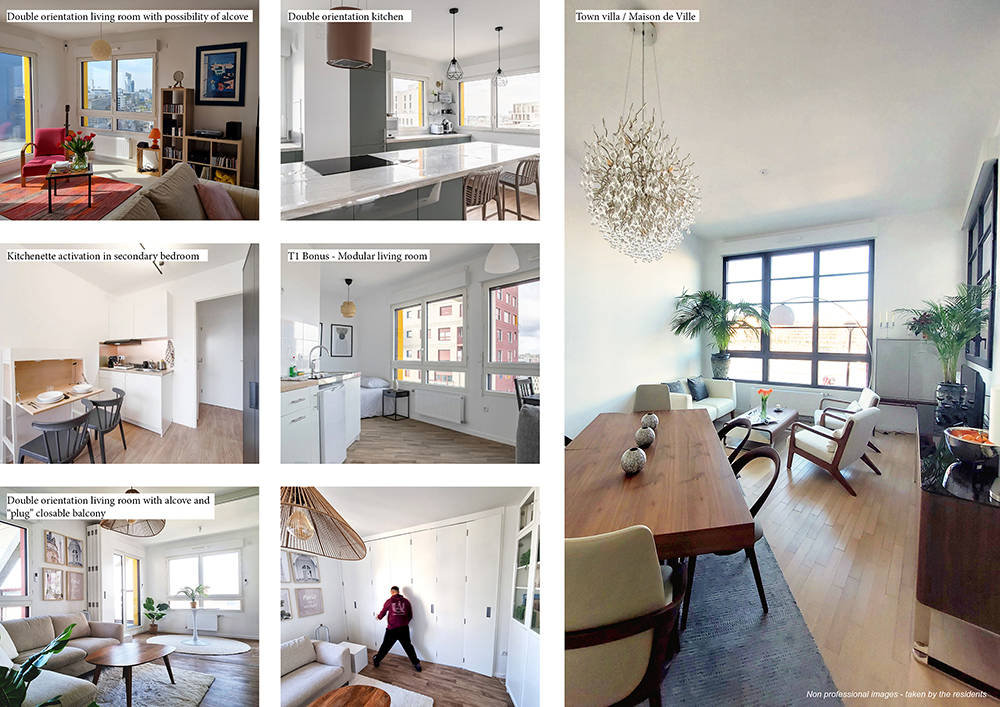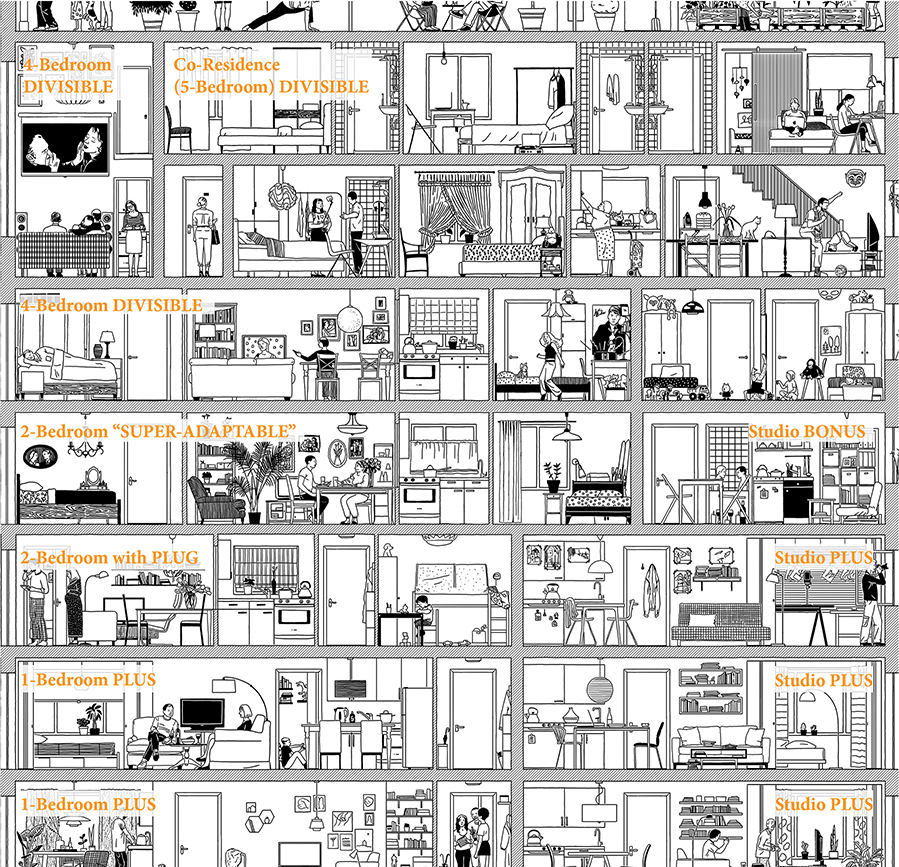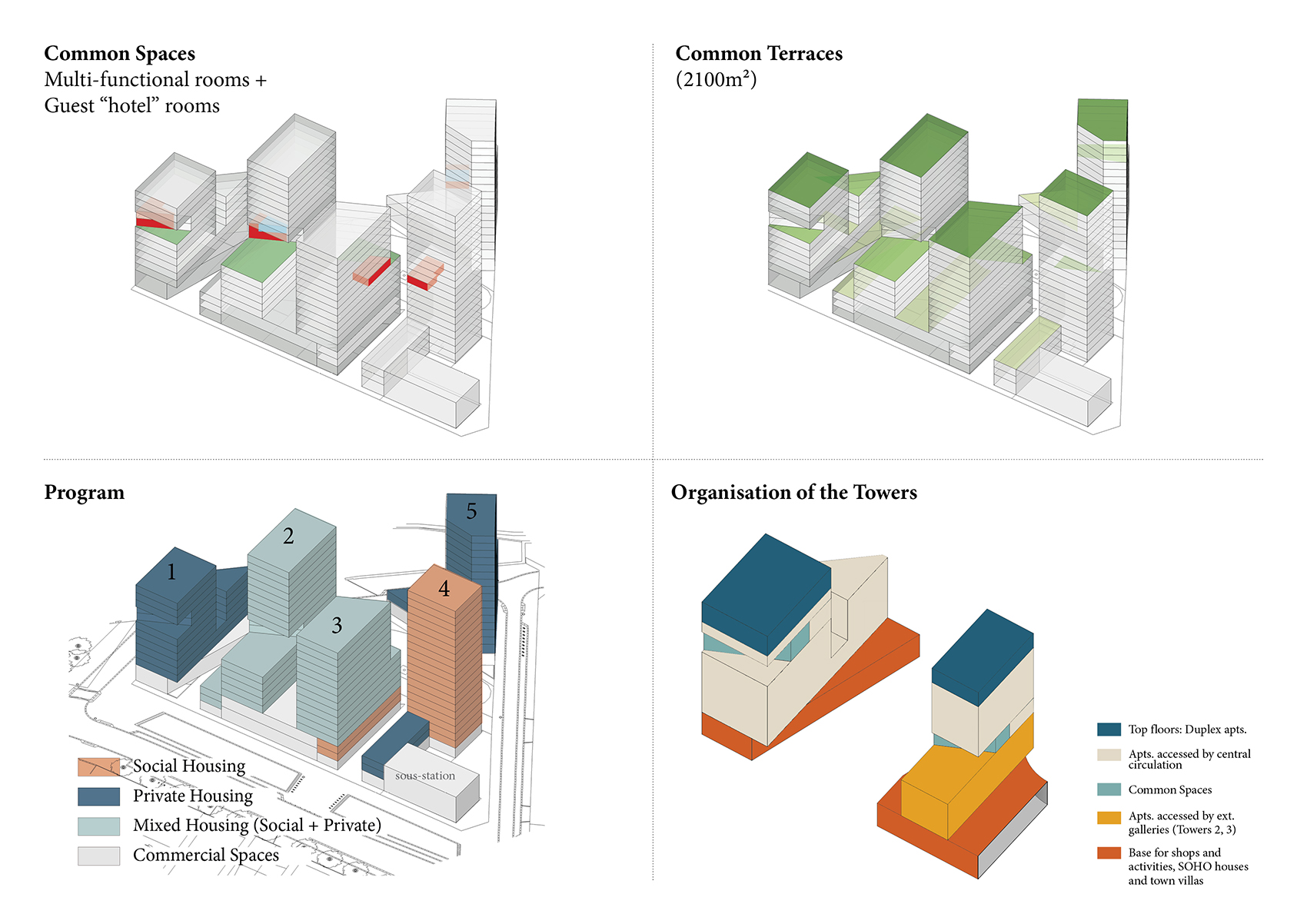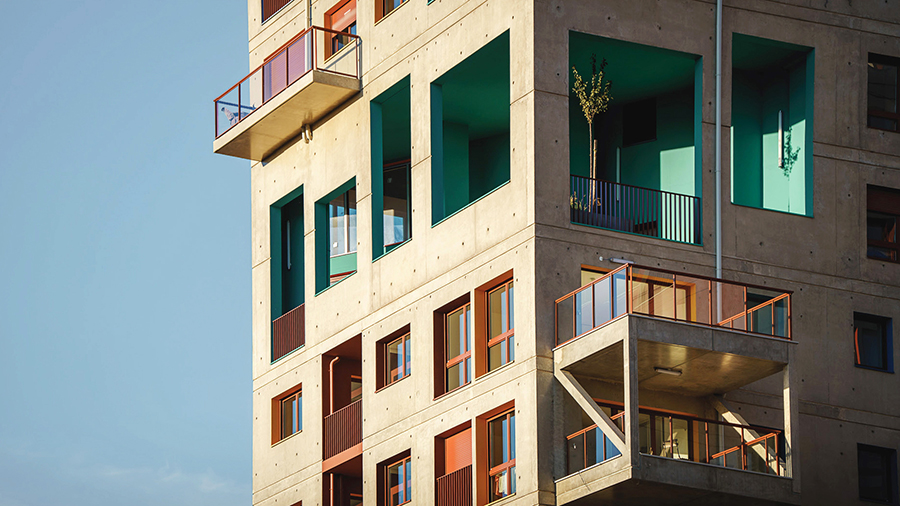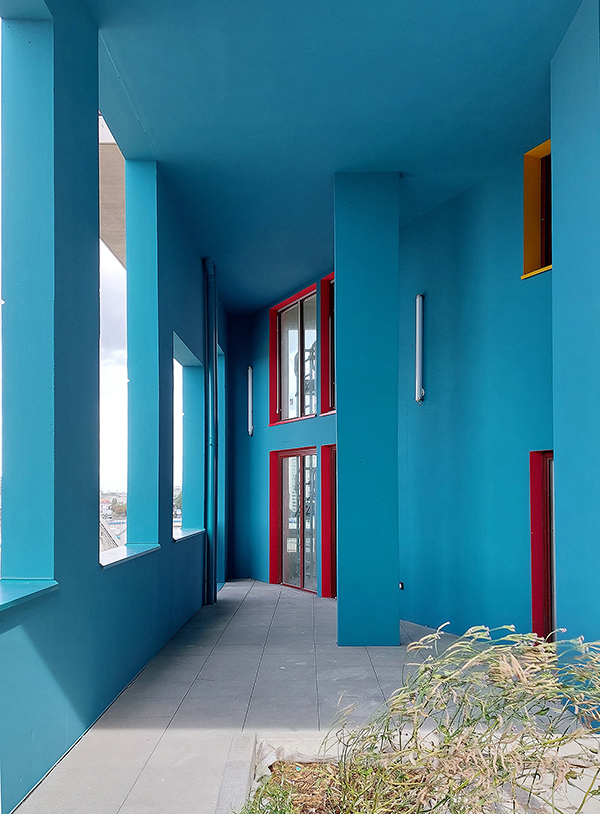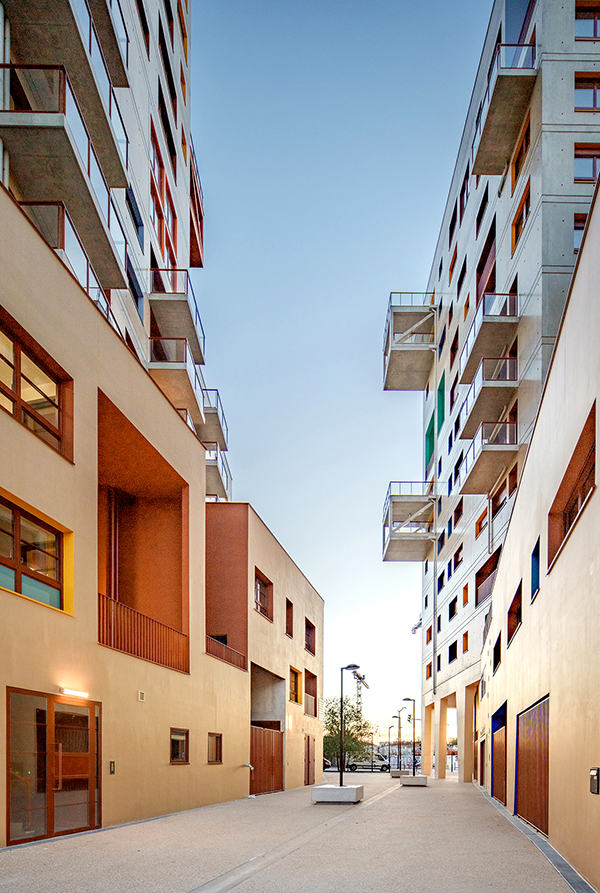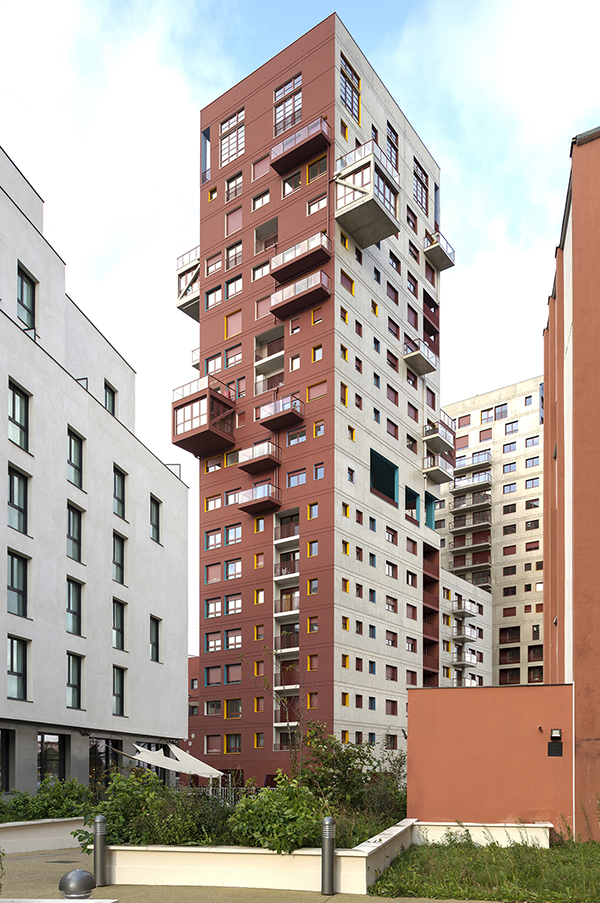START, Ivry-sur-Seine, Greater Paris
A new generation of social and affordable private housing in France; when housing adapts to its inhabitants and not the other way around.
At the confluence of the rivers Seine and Marne START redefines Ivry’s skyline while addressing a dual housing chal-lenge: reinventing the residential tower—an often-criticised typology in France—and creating exceptional, inno-vative apartments. START offers a vital alternative to the paradox of standardised housing in an era of unprece-dented household diversity.
Households and Housing have followed diverging logics, creating a disconnect between spaces and the people who inhabit them.
-Households have become increasingly diverse—single parents, blended families, flat-sharing, unemployed young people, seniors requiring care, cohabitations, remote workers, young adults temporarily returning to live at home…
-Housing, meanwhile, has followed a different path—shaped by tight regulations and developer priorities. The result is a park of standardised apartments: rigid “containers” defined by rules and budgets rather than real-life needs.
Today’s society—with all its contradictions and diversity—cannot be reflected in the homogeneity of a standard-ised floorplan. This conviction inspired START: a project that places inhabitants and their lifestyles at the centre, creating housing that adapts to life’s changes, especially for the most vulnerable. The apartment thus ceases to be a burden, and becomes a support for their personal growth. It is the apartment that adapts to its inhabitants and not the other way around. Whether accommodating family growth, divorce, ageing parents, new work patterns, multigenerational living, temporarily hosting an unemployed adult child, or optimising space after children leave home, these principles aim to create truly adaptable, “lifetime homes” that support residents through diverse life transitions.
The project proposes a wide range of typologies and solutions, from studios to four-bedroom units, including multiple intermediate types. Three series of principles were set up in order to orchestrate the project: “10 Typolog-ical Principles” to ensure adaptability, flexibility, and resilience in the apartments, “8 Space Quality Principles”, and “10 Principles to create a Good Tower”, for a positive declination of density.
Examples of our Adaptability Principles include:
-Divisible 3- or 4-bedroom apartments
-Super-adaptable 2-bedroom apartments
-Groupable studios or 1-bedroom apartments
-Annex room (alcove) – a small additional space
-Modular living room – a temporary extra ‘room’
-Plug – closable balcony
-Co-residence – shared housing solution
-Movable kitchen – enabling an extra room
-Future kitchenette – for added autonomy
-Future functions – bathroom, WC, etc.
Beyond individual adaptability, START creates a sense of community through shared spaces. A dedicated ‘band’ of communal areas and terraces, located on the 7th floor of all buildings, enhances social interactions. These tur-quoise carved-out spaces articulate the towers’ scale and introduce a horizontal rhythm to the volumes.
The volumes are meticulously designed to maximize natural light, optimize views, and allow for diverse apartment configurations. Each tower is visually divided into three segments, creating a layered perception of height: the Street, the City, and the Sky.
The façades follow a “narrative” logic, reflecting the interior functions while responding to their urban context. Window jambs are color-coded based on their internal use, loggia colors distinguish the three different sections of the tower, and the exposed and reddish-painted concrete draws inspiration from Ivry’s metropolitan sur-roundings, and in particularly its pioneering brutalist architecture.
START is composed of 5 buildings ranging from 12 to 18 floors, developed according to our set of Housing Princi-ples. It hosts 288 apartments (up to 350 after future division) and 14 commercial spaces. The total surface area is 22,863 m², of which 19,700 m² is residential, including 34% social housing. It hosts 2.119 m² of common terraces at different heights and 2,600 m² of public space on the ground floor. The construction budget is € 43.3 Mill. ($ 48.11 Mill.).
START is the built manifesto of our research into affordable and adaptable housing. It challenges outdated dog-mas and confronts the standardisation trend, proposing instead a resilient and inclusive model for the future.
– – – – – –
FULLY SUSTAINABLE STRATEGY – THE NEED FOR SOCIALLY SUSTAINABLE HOUSING
There is much discussion about environmental performance, but in housing, we must also emphasize “habitable performance.” What is the point of an apartment perfectly adapted to the climate if it does not adapt to its in-habitants?
-The Missing Dimension:
A building may comply with many environmental certifications, yet still fall short of responding to the realities of contemporary life. START introduces a long-overlooked dimension in housing: the inhabitant and their evolving, often unpredictable, spatial needs.
The obsession with measurable performance often side-lines critical but intangible social aspects such as:
• Household evolution and adaptability.
• New and emerging living arrangements.
• Practical, functional spaces that serve real-life needs.
A new child, a divorce, a blended family, remote work, an adult child returning home, a live-in caregiver, empty bed-rooms after children leave—these are real-life scenarios that housing must accommodate, yet they are rarely considered in apartment design. Instead, regulations and quantitative metrics—budget, energy consumption, etc.—continue to define the standard.
START-Ivry tackles this challenge by designing apartments that enhance quality, functionality, and resilience, even within a reduced surface area.
Beyond spatial adaptability, START also delivers strong environmental results:
-20% reduction in energy consumption compared to current standards
-Use of 20% low-carbon concrete, which serves both as structure and façade, reducing material use and embodied carbon.
-Redefining Housing Quality
By placing the inhabitant at the core of the design and developing a set of Housing Principles that address both current and future needs, START sets a fully sustainable strategy—one that integrates social, economic, and envi-ronmental dimensions. For example:
1. Divisible Larger Apartments (≥ 3 bedrooms)
-Social: Apartments adapts to the changing spatial needs
-Environmental: A new unit can be created without additional resources
-Economic: Owners generate income by renting or selling the new unit
-All technical and legal provisions are integrated in the building and legal structure
2. Super-Adaptable 2-Bedroom Apartments
-Designed for diverse cohabitation models, ex.:
-Couples + ageing parents
-Seniors + caregivers
-Parents + returning adult children
-Seniors + students
-This adaptability reduces the need for one-bedroom units and increases the long-term resilience of the housing stock.
-Harmonious cohabitation is ensured through non-adjacent bedrooms, a 2nd bathroom, and pre-equipped shafts for future kitchenets for extra autonomy
